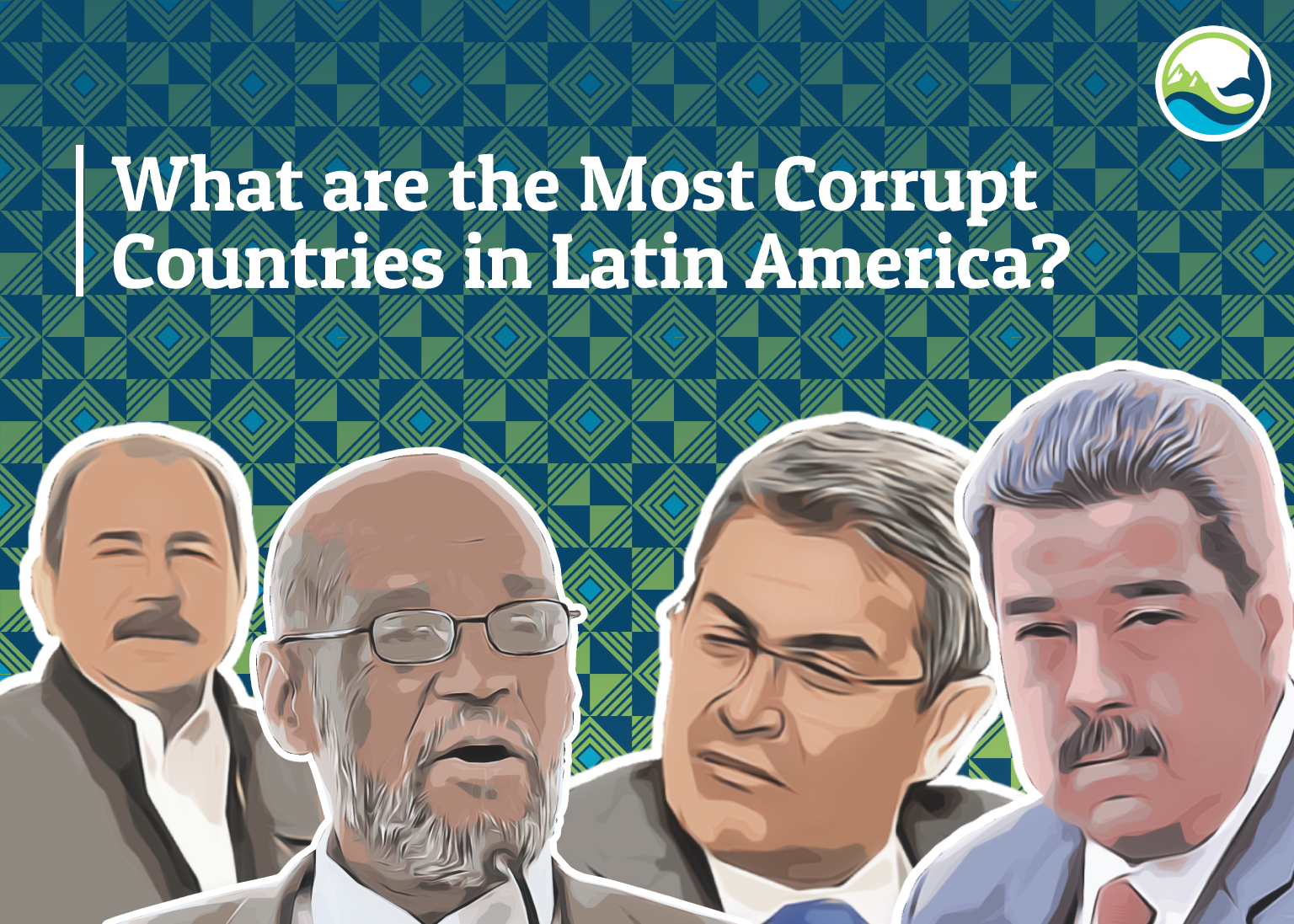
What are the Most Corrupt Countries in Latin America?
CARIBBEAN, 11 Feb (InSight Crime)
Latin American countries scored poorly on Transparency International’s latest corruption index, with the worst joining the ranks of war-torn nations and dictatorships.
Of the 19 Latin American countries ranked, three-quarters scored below 50 in the Corruption Perceptions Index (CPI) for 2021. The worst was Venezuela, which scored below North Korea and Afghanistan.
Using assessments from country experts, business analysts, and international organizations, the index rates countries on a scale from zero to 100. Scores below 50 indicate flagrant corruption problems. The data collected by Transparency International looks at bribery, the diversion of public funds, officials using their office for private gain, conflicts of interest and legal protections for those denouncing corruption.
Caribbean countries fared better in the index. Of the ten ranked, six scored above 50, though none rated above 65.
When Canada and the United States are excluded, the average score for the region is 41, putting it a notch below the global average of 43. Without the Caribbean, it drops to 37.
Below, InSight Crime breaks down the scores in a region that continues to be rife with corruption.
Scores of 0 to 25: Highly Corrupt
Venezuela held the title for the seventh consecutive year as the most corrupt country in the Western Hemisphere with a score of 14, an all-time low for the country.
As InSight Crime has reported, Venezuela has essentially become a mafia state. Officials and security forces at every level are involved in criminal activity. Pilfering of state coffers is rampant, while drug trafficking, illegal mining, and other criminal economies are widespread.
Venezuelan government officials are known to collaborate with gangs. State security forces have colluded with the Colombian guerrilla group the National Liberation Army (Ejército de Liberación Nacional – ELN) to take control of illegal gold mines in the Amazon.
The rot in Venezuela starts at the top, with President Nicolás Maduro, whom the United States Department of Justice has accused of narco-terrorism, corruption, drug trafficking and other offenses.
Just above Venezuela were Haiti and Nicaragua, which each received a score of 20.
Haiti saw a slight uptick as compared with the last two years, as the effects of the July 2021 assassination of the country’s president, Jovenel Moïse, are only just beginning to be felt.
Meanwhile, Nicaragua saw its score hit a new low. This is not surprising, considering that, on his way to winning his fourth consecutive presidential election, President Daniel Ortega used the country’s justice system to silence political opponents, some of whom were jailed or subjected to a range of abuses.
Honduras also hit a new low, scoring a 23 — tying the country with Iraq. The low score stemmed partly from accusations linking Honduras’ former president, Juan Orlando Hernández, to his brother’s drug trafficking ring.
Meanwhile, Guatemala’s score of 25 remained unchanged from the previous year. The country tied with Iran. High-profile graft probes and the dismissals of those investigating corruption explain the country’s low ranking.
Scores of 26 to 50: Corruption Issues
The average global corruption perception score was 43 out of 100. Of the 21 Latin American and Caribbean countries scoring less than 50, 19 fell below the global average.
The countries scoring in this bracket were Paraguay (30), the Dominican Republic (30), Bolivia (30), Mexico (31), El Salvador (34), Panama (36), Ecuador (36), Peru (36), Brazil (38), Argentina (38) and Colombia (39), Guyana (39), Suriname (39), Trinidad and Tobago (41).
Only Jamaica (44) and Cuba (46) scored higher than the global average.
In the case of Paraguay, InSight Crime published an investigation just last year revealing how a Paraguayan congressman conspired with an alleged drug trafficker to protect cocaine shipments in exchange for illicit funds.
El Salvador’s declining score reflects growing corruption within the government of President Nayib Bukele, including the decision to dissolve the International Commission against Impunity in El Salvador (Comisión Internacional Contra la Impunidad de El Salvador – CICIES) after the entity started to investigate several members of the Bukele administration for mismanaging coronavirus emergency funds. Additionally, the US government, in 2021, blacklisted two officials with close ties to Bukele for allegedly making deals with street gangs.
Ecuador’s plummeting score was also to be expected. The country has emerged as a key trafficking route for drugs, arms, explosives, and migrants. Corruption has eaten away at state institutions.
Peru’s falling score comes as President Pedro Castillo faces corruption allegations that have led to impeachment proceedings, while in Argentina, instances of corruption among judicial authorities have created the impression of impunity.
Cuba’s comparatively high CPI ranking may come as a surprise to some, given that it is a one-party state.
While Cuba’s low corruption perception score may reflect steps taken to rein in corruption during the administrations of former president Raúl Castro and President Miguel Díaz Canel, political corruption remains an issue, and the low perception score could be more a reflection of the country’s limits on press freedom.
Scores of 50 to 100: Relatively Clean
Only three Latin American countries scored above 50: Uruguay, Chile and Costa Rica.
Uruguay scored higher than the United States, but lower than Canada. Transparency International credited its “independent judiciary and the protection of basic rights [as] vital in preventing corruption from permeating the [Uruguayan] State.” Chile, meanwhile, tied with the United States.
The Caribbean countries of Barbados, The Bahamas, Saint Vincent and the Grenadines, Saint Lucia, Dominica and Grenada all scored above 50, suggesting minimal corruption concerns. But these countries are all known hubs for money laundering, a known contributor to corruption worldwide.



